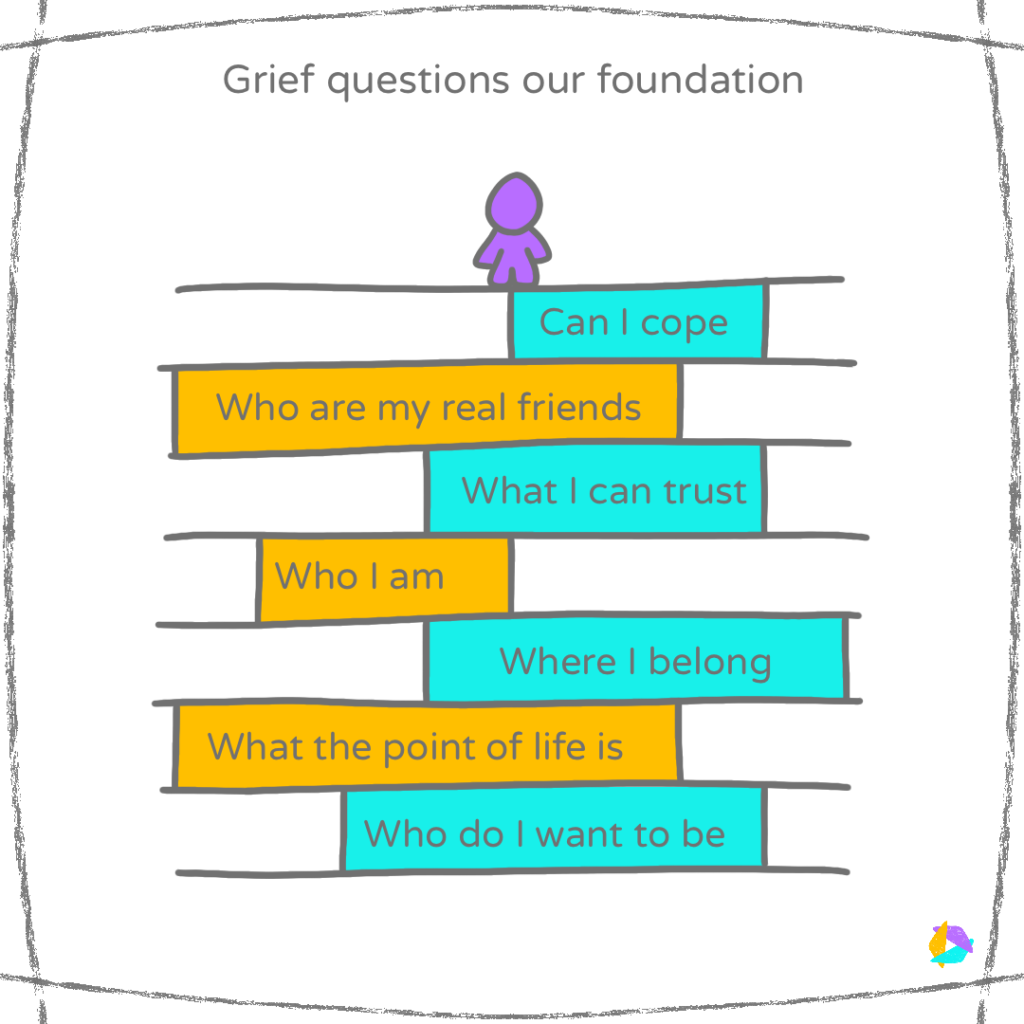When every part of you denies reality, how do you cope? My greatest loss was when I was 17. I wished for an undo button, just a simple undo button, a rewind, like in a video game. For several years, over a decade really, I spoke about it and around it in a matter-of-fact way. I kept my distance. Certain words, or storylines in a TV show or film, would make me wince and if strong emotion came over me, I held it off until I was alone. When it came to my counselling training, we’re encouraged to look at our own struggles, and this loss was undoubtedly, and still is, my hardest. As I allowed attention to focus on it, and as future relationships came and went, I found new ways to view and express this loss.

Grief is a multilayered process with no right way. No one can fully express the loss they hold, and therefore no one can judge how well they manage it. As we process each layer of grief, we don’t know the extent of its repercussions. At any moment we may feel the edges of that loss, but we have no idea how deep it goes, and how overwhelming the floods of emotion will be if and when we do venture further in.
We do the best we can. Sometimes the pain is pointy and jarring, sweeping into every movement and every thought. At other times, it’s dull and just out of view, in our blind spot. But if we turn to it, signalled by a word, a name, a smell, a location, the pain jars us. Not only an unpleasant reminder, it also contains us. Ongoing conversations become muffled as we become aware of our isolated experience.
As much as anyone can try to support us, grief is a solitary experience at the end of the day. But we do find ways to cope. Hours pass without a jarring thought, weeks, and longer. Just as our bodies heal around injuries, we accept our scars.
